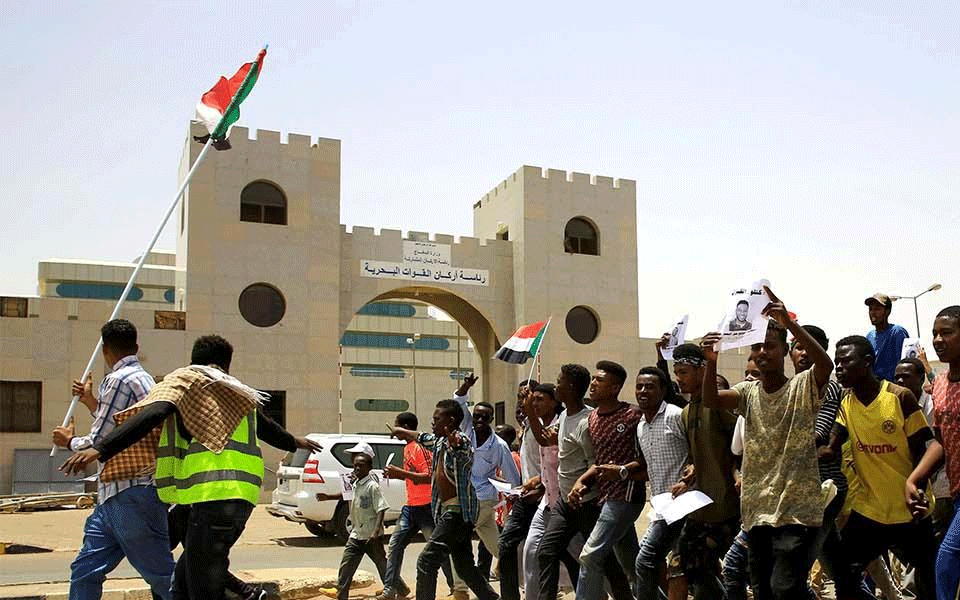Khartoum: Thousands of protesters massed outside Sudan's army complex in Khartoum on Friday, piling pressure on the country's new military rulers to swiftly transfer power to a civilian administration, witnesses said.
The army on April 11 ousted Sudan's longtime leader Omar al-Bashir after a months-long protest movement.
A military council which took power has so far resisted calls from protesters to quickly bring in a civilian adminstration.
On Thursday, exactly four months since protests started, roads leading to the sit-in area were packed with crowds flocking to the army headquarters.
Activists mobilised demonstrators through social media to keep up the pressure for replacing the military council, now led by General Abdel Fattah al-Burhan.
"Power to civilians, power to civilians," protesters chanted through Thursday night.
"I won't leave until Burhan transfers power to a civilian government," said Wali Aldeen, who has camped outside the complex since the day Bashir was ousted.
Activists have called for large crowds to gather after the weekly Muslim prayers, as on previous Fridays.
Protests first broke out on December 19 in response to the tripling of bread prices, swiftly turning into nationwide rallies against Bashir's three-decade rule.
After his ouster, protesters demonstrated against General Awad Ibn Ouf who took over as the first head of the military council, insisting he was a close aide of Bashir and a top regime figure.
Ibn Ouf stepped down in less than 24 hours and was replaced by Burhan, who so far has appeased protesters by lifting a night-time curfew and vowing to "uproot" the Bashir regime. (AFP)
Let the Truth be known. If you read VB and like VB, please be a VB Supporter and Help us deliver the Truth to one and all.
Dubai: Smoke was seen rising from an area near the United States Consulate in Dubai, according to witness accounts cited by Reuters.
There was no immediate official confirmation on the extent of damage or whether there were any casualties in the incident.
Earlier, the US embassy in Riyadh, Saudi Arabia’s capital, was also attacked. Authorities reported damage to the premises, but no casualties were recorded.
The developments come amid heightened tensions in the region, with Iran continuing to target US interests in the Middle East following deadly attacks launched on Saturday by Israel and the United States.
Near US embassy in Dubai pic.twitter.com/z5VTZNVxNO
— Sahil Shah (@thesahilsshah) March 3, 2026





